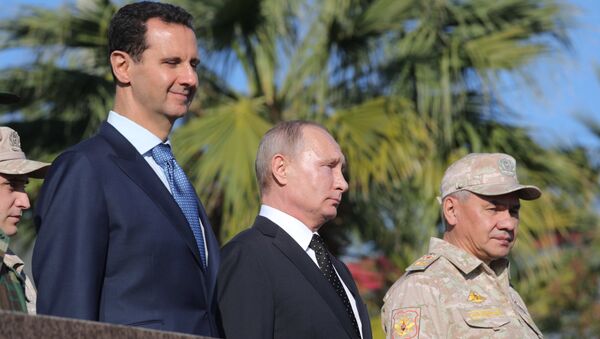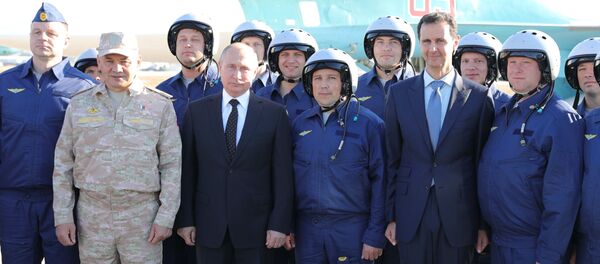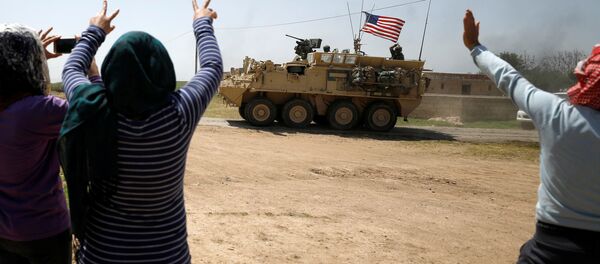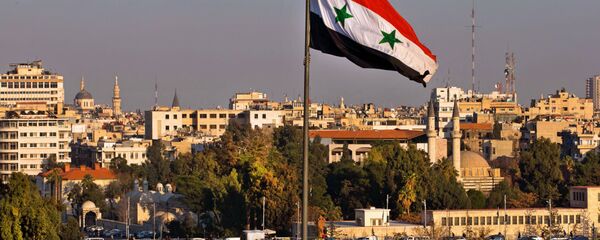The withdrawal of Russian troops from Syria, announced by President Putin during his December 11 visit to Latakia's Hmeymim airbase is a challenge to the United States, which continues to maintain its military forces in at-Tanf and on the eastern bank of the Euphrates, Muhannad al-Haj, the commander of the First Battalion of the Baath Brigades and Syrian parliamentarian, told Sputnik Arabic.
"Russia, which coordinated its operation in Syria with its government, now is withdrawing part of its forces after the successful completion of the operation," al-Haj emphasized. "Now we'll see what the Americans will do; the ball is in their court now."
At the same time, the commander highlighted the significance of Putin's announcement of a victory over terrorism. Al-Haj noted that Monday's public appearance of the Russian and Syrian presidents clearly demonstrated that Moscow will not let Syria down during times of need.
Syrian political scientist Timur Dwidar echoed al-Haj: "The Hmeymim airbase became a symbol for the entire region and the world that Moscow does not abandon its allies amid difficult circumstances."
"President Vladimir Putin very clearly told the terrorists and their backers that if the jihadists ['raise their heads'] again, Russia will deal a devastating blow to them," Dwidar said.
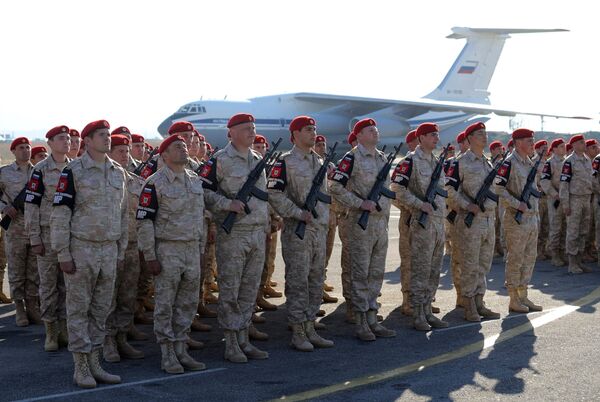
The political scientist denounced the claim that Putin's announcement has anything to do with his election campaign in Russia: "I categorically disagree. [Putin] is very popular now and he does not need to use such artificial methods."
Dwidar noted that the main message of the Russian president's trip to Syria is the end of the war against terrorism.
"Putin kept his word and helped Syria," the political scientist noted. "Russian troops can return to the republic within 24 hours."
For his part, Akram al-Shalli, the Syrian analyst specializing in crisis management and preventive wars, highlighted that Moscow's campaign in Syria was a preventive operation against terrorism, which threatened to spread to Russian territory.
According to al-Shalli, the result of this war is the liberation of Syria from terrorists. However, he noted that a lot has to be done to expel remaining jihadist groups from the country and eliminate sleeping cells.
Additionally, "this victory will have consequences at the global level," he said. "The victorious countries have gained valuable experience and can help other states to fight terrorism."
On December 11, President Putin ordered the withdrawal of Russian forces from Syria after a two-year long military campaign kicked off at the request of the Syrian legitimate government on September 30, 2015.
The Russian president added that the two bases, in Tartus and Hmeymim, as well as the center for Syrian reconciliation, would continue to operate.
Putin's announcement followed his previous statement on the defeat of Daesh terrorists along both banks of the Euphrates River. The existing isolated hotbeds and sleeping cells have yet to be eradicated in the region.
According to Russian Defense Minister Sergei Shoigu, the pull-out has begun; however, the time frame of the withdrawal would be determined by the situation on the ground, the defense minister underscored.
While Russian troops are leaving the Middle Eastern region, Damascus allies including Iran's special forces, Shia militias and Hezbollah units continue operations on the ground. Foreign actors such as Turkey, the US and the American coalition forces still maintain their presence in Syria.
The views and opinions expressed by Muhannad al-Haj, Timur Dwidar and Akram al-Shalli are those of the speakers and do not necessarily reflect those of Sputnik.

